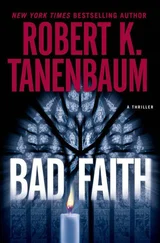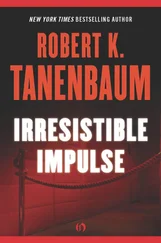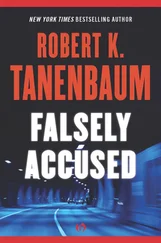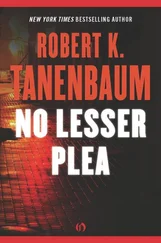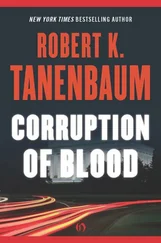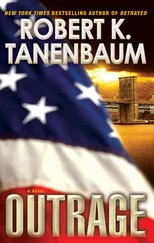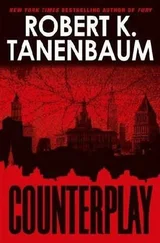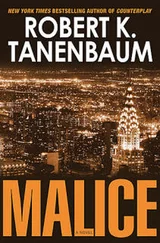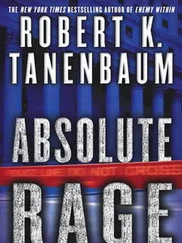Robert Tanenbaum - Reversible Error
Здесь есть возможность читать онлайн «Robert Tanenbaum - Reversible Error» весь текст электронной книги совершенно бесплатно (целиком полную версию без сокращений). В некоторых случаях можно слушать аудио, скачать через торрент в формате fb2 и присутствует краткое содержание. Жанр: Криминальный детектив, на английском языке. Описание произведения, (предисловие) а так же отзывы посетителей доступны на портале библиотеки ЛибКат.
- Название:Reversible Error
- Автор:
- Жанр:
- Год:неизвестен
- ISBN:нет данных
- Рейтинг книги:5 / 5. Голосов: 1
-
Избранное:Добавить в избранное
- Отзывы:
-
Ваша оценка:
- 100
- 1
- 2
- 3
- 4
- 5
Reversible Error: краткое содержание, описание и аннотация
Предлагаем к чтению аннотацию, описание, краткое содержание или предисловие (зависит от того, что написал сам автор книги «Reversible Error»). Если вы не нашли необходимую информацию о книге — напишите в комментариях, мы постараемся отыскать её.
Reversible Error — читать онлайн бесплатно полную книгу (весь текст) целиком
Ниже представлен текст книги, разбитый по страницам. Система сохранения места последней прочитанной страницы, позволяет с удобством читать онлайн бесплатно книгу «Reversible Error», без необходимости каждый раз заново искать на чём Вы остановились. Поставьте закладку, и сможете в любой момент перейти на страницу, на которой закончили чтение.
Интервал:
Закладка:
"You want to come up now? Where are you?"
A nervous laugh. "Well, actually, I'm right across the street. In the phone booth."
Cute, she thought, calling from across the street. It was thrilly and flattering, not the kind of thing an insurance junior executive would ordinarily do. Like in a movie.
"Just a minute," she said, and put the phone down. She skipped out to the hallway and looked out the hallway window. Her apartment faced the air shaft and this was the only way she could see out to Third Avenue. It was near dusk, a late Saturday afternoon, but she could see the figure in the phone booth three stories down. It was the guy.
She went back to her place and looked around. Reasonably neat. She picked up a skirt she had been hemming, threw it on a chair in the bedroom, and closed the door. She checked herself in the mirror in the living room, ran a brush through her hair, and tucked her shirt into her jeans. Then she picked up the phone.
"Come on up, then," she said. "But just for a little while."
When Art Dugman was angry he clenched his jaw so tightly that little round bunches of muscles, like grapes, stood out against his jawline, and thick veins popped out on his temples. In the Twenty-eighth Precinct they said that from the size of the veins you could estimate the degree of anger. To Lanny Maus they looked like firehoses ready to burst.
"Take it easy, Art," he said placatingly. "It ain't the end of the world."
"Boy, you don't know what the fuck you talk-in about," Dugman shouted. "They treatin us like fools! How long you think we gonna last out there if the word get around we been fucked up the ass like this?"
"What're you talking about, fucked up the ass? The D.A.'s the one screwed up-they had a kid in there didn't know shit from Shinola…"
Dugman gave him a baleful stare. "The fix is in. It was set up."
"Wha-a-a-t! You saying the D.A.'s bent, and the judge too?"
"I don't know about the D.A., but if the score was tied with seconds left, and the coach pulled out Dr. J. and put in some kid who never shot a basket in his life, you probably might want to see if he was talking to bookies. The judge? Fuckin Nolan's been on the wire longer than Western Union. If it wasn't fixed, grits ain't groceries and Mona Lisa was a man."
From the corner of the squad room where he habitually sat, leaning his chair against the wall in the space between two filing cabinets, Jeffers asked, "If you right, why'd they spring him? He wasn't doin any talking."
"Why?" replied Dugman. "Why you think? This big, my man, real big, and real dark. We got serious players involved here. Sure, he wasn't talking, but then, he never been up on no murder charge either. They can't take that chance."
"Somebody's gonna hit him," said Maus.
"Now you detectin, baby!" Jeffers exclaimed. "You cookin good!"
"Fuck you, Mack," said Maus. Then to Dugman: "We gonna pick him up? Where's he gonna go?"
"Where you think?" Dugman snarled. "He ain't got but one place to run. His momma." Ellen Wagner opened a beer for her guest and a Diet Pepsi for herself. They listened to the tape. Cliff seemed more nervous than she remembered him being, as if he were waiting for something to happen. When the tape ran out, Cliff rose to his feet to retrieve it. He slipped it into the pocket of his jacket.
"That was great," she said. "Can't I keep it? Or make a copy?"
"No can do: I'd get in trouble if they even knew I had it," he said apologetically. "Sorry."
"Oh," she said, beginning to get irritated. She didn't need two cautious guys in one day. She rose herself and plumped up the pillows where they both had been sitting. "Well, look, it's been real, but I have to get dressed, so…" She began to gather the glasses and cans from her coffee table.
"Let me watch you get dressed," he said softly.
She turned around abruptly, a sharp rebuke ready on her lips. It died there when she saw the expression on his face. Then she saw the knife.
Maus drove rapidly up Bradhurst Avenue, through the opening movements of Harlem Saturday night. It would start after suppertime, in the dusty twilight, first the little kids, running in screaming knots under the streetlights and through the schoolyards. Then the older kids would come out and hang in dense pockets around candy and convenience stores, blasting the night with boom-box music, yelling to each other, taunting, playing the dozens, going in and out of old unmuffled cars.
Later the older men and women would emerge, heading for the liquor stores or the clubs or the storefront churches, according to how they had decided to deal with life in Harlem. Last of all came the players, the pimps, gamblers, whores, runners, drug dealers, although there were getting to be so many of these that competition was driving them toward a continuous presence on the street. Maus drove by several places where drugs were being sold openly, circulating masses of young black men and women who talked little and shook hands with one another a lot.
Things were getting worse, according to Art Dugman, who had lived here all his life. Dugman had lovingly described for Maus Harlem as it used to be, full of sober, striving people constructing a dignified life in a world of unremitting hatred and contempt, blazing with music, lit by the genius of language.
"Crime and King killed Harlem," Dugman would say: crime for obvious reasons and King for leading the fight for civil rights and an end to segregation for those with the wit or luck to leave.
What was left was OK with Maus. Maus loved Harlem. To him it was like the Arabian Nights stories he had loved as a child-squalid, violent, exotic, exciting. This was not an opinion shared by many white cops from Long Island, which was why Maus was in the King Cole Trio and they were not.
"Turn right on Forty-four. It's 306," said Dugman.
Maus swung the blue Plymouth to the curb half a block east of where 144th Street joined Bradhurst, parking behind a hulk car up on cinder blocks. The hulk doubled as a playground for little kids, a party venue for teens, and a convenient rest stop for junkies on the nod. As the three cops left the car a party was getting under way; a dozen young men and a smaller number of girls were listening to music from a boom box set on the roof of the hulk, laughing, jiving, and passing around a fifth of sweet wine.
Dugman and Jeffers headed directly for the entrance to number 306, a classic five-story Harlem brownstone with broad limestone steps and balustrades, covered with graffiti and with inhabitants enjoying the early-summer evening. As the two cops mounted the stairs they seemed to bear before them an invisible cloud that suppressed casual conversation and caused the aversion of eyes.
They climbed three flights. Dugman flicked his head and eyes upward. Jeffers nodded and continued up the stairs. Dugman turned down the hallway to the apartment where Mrs. Booth supposedly lived. Dugman would knock on the door. If Tecumseh Booth was there, either Dugman would grab him or he would go out the fire escape. If he went down, Maus would pick him up; if he went up, Jeffers would. The Trio had done this a lot.
Down in the street, Maus had become an object of interest to both the young people in the hulk car and the children circulating in the street. Half a dozen little kids asked to see his gun. Several times a corruscating gale of foul language would emerge from a tiny mouth when he refused to do so. Maus just smiled and flicked his eyes from one side of the cliff of buildings to the other, watching the windows, straining his eyes in the gathering dark. As the light faded, the party got bolder.
"Hey, po-lice! He long gone!"
"Hey, you momma in there, runnin' a train!"
"Yo, Jake! Gonna shoot another nigger, muh'fuck?"
A thin girl of about fourteen in a white off-the-shoulder blouse and her hair in corn rows strung with bright beads came dancing in front of him, her smile wide and mocking. "Hey, li'l whitey, they lef you all alone. You want company? You wann give me a ride in you' po-lice car?"
Читать дальшеИнтервал:
Закладка:
Похожие книги на «Reversible Error»
Представляем Вашему вниманию похожие книги на «Reversible Error» списком для выбора. Мы отобрали схожую по названию и смыслу литературу в надежде предоставить читателям больше вариантов отыскать новые, интересные, ещё непрочитанные произведения.
Обсуждение, отзывы о книге «Reversible Error» и просто собственные мнения читателей. Оставьте ваши комментарии, напишите, что Вы думаете о произведении, его смысле или главных героях. Укажите что конкретно понравилось, а что нет, и почему Вы так считаете.

